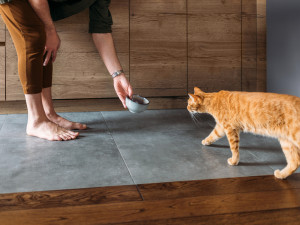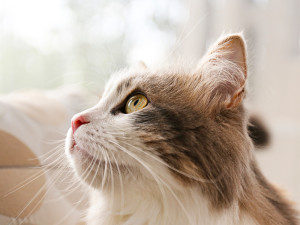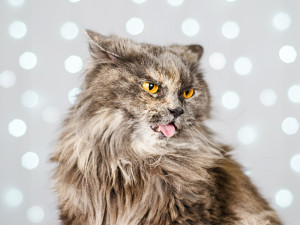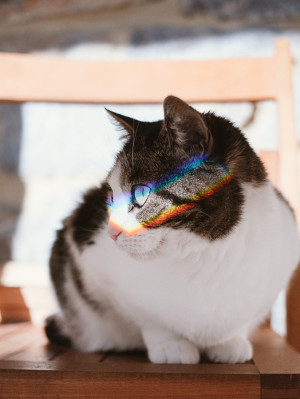Dogs Rule, Cats Drool, Right?
Sometimes it works the other way round – here’s why your cat is drooling
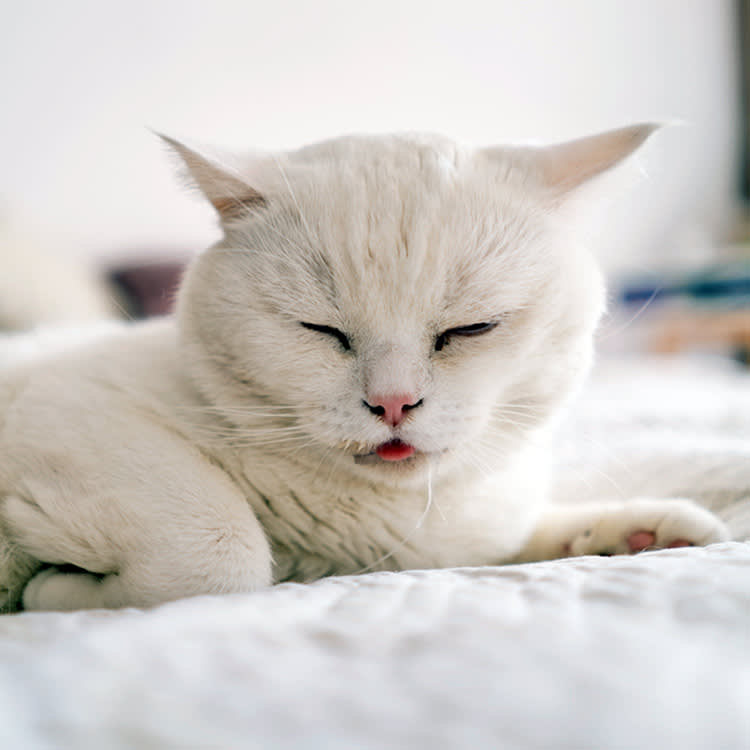
Share Article
We expect some level of drooling from dogs – especially the jowly ones. But a cat with ropes of saliva dangling from their face? That doesn’t quite fit with the sophisticated aesthetic cats have worked so hard to develop. And you’re right to be a little concerned: although drooling has some benign causes, it may also indicate a more serious health issue.
Common reasons your cat might be drooling include:
Stings: check inside the cat’s mouth and around the face and neck for any swellings or signs of being stung by an insect, wasp or bee.
Broken tooth or injury inside the mouth: cats will drool with any pain from inside the mouth. This can include traumatic injuries or may even be from a foreign body wedged in the roof of the mouth or stuck in the throat.
Reaction: cats will react by drooling if they have licked anything off their coat whilst grooming themselves. This can include flea treatments, chemicals in the garden, toxic plants, creosote, paint, antifreeze, poisons.
Ahead are more reasons why your cat may be drooling (most of which warrant a trip to the vet).
Oral irritation
Curious cats will often investigate their environment with their mouths. This exploration can lead to tasting different house plants, insects, liquids and household items. Some common toxic indoor plants such as elephant ear, fiddle-leaf fig and Dieffenbachia (dumb cane) contain oxalates, which are small crystals that cause oral irritation on contact.
How much do you spend on your pet per year?
Licking caustic substances like household cleaners and chemicals can produce painful ulcers on a cat’s gums and tongue. And chewing on electrical cords can cause electrical shock, but drooling due to burns in the mouth may be the only sign that all is not well. Unless you catch your cat chewing cords chronically, here are some other potential causes.
Periodontal disease
Your cat’s mouth contains lots of different, naturally occurring bacteria. The bacteria on the teeth form an off-white, sticky layer called dental plaque. If the plaque isn’t removed it hardens to form tartar (a brown, rough deposit on the teeth) within days.
The bacteria within plaque and tartar attack the gums and cause inflammation of the gum tissue. Plaque damages the gum tissues and then the other structures which attach the teeth (such as ligaments and bone). This is a painful process and if left untreated, the tooth will become loose and eventually ‘fall out’.
Cats are stoic animals and they hide pain well, providing an oral care regime at home and having your pet’s mouth checked regularly by your vet or vet nurse, can help to prevent this condition
Without treatment, the bacteria travel deeper and damage the supporting structures of the tooth, this is known as periodontitis, this condition is irreversible and needs dental treatment by a veterinarian.
Stomatitis
Some cats, especially those exposed to viral diseases like herpesvirus and calicivirus, can develop stomatitis. Cats with stomatitis experience inflammation and ulceration of the gums, tongue and cheeks. As you can imagine, kitties with periodontal disease and/or stomatitis experience oral pain that can lead to drooling and difficulty eating.
Oesophagitis
Oesophagitis can develop when material gets stuck in a cat’s oesophagus or causes irritation on the way down to the stomach. This oesophageal irritation can also occur with acid reflux or after repeated vomiting. Inflammation of the oesophagus can make swallowing painful and can cause cats to stop eating to avoid this pain. Even with normal saliva production, cats may opt to let the saliva fall out of their mouths rather than deal with the discomfort of swallowing.
Medication
Medicating cats can involve a lot of drama – chasing them around the house, finding them hiding under the bed, avoiding claws and teeth. It’s no fun for you or your cat. For some medications, no amount of tuna or treats will cover the bitter taste completely, and your cat will be more than happy to show their displeasure by foaming, drooling and trying to spit it out in the most dramatic way possible. Certain eye drops may cause drooling, too, because tear ducts drain to the back of the throat.
Nausea
Signs of nausea in both dogs and cats include poor appetite, lip smacking, drooling and vocalisation. Cats can become nauseated from eating something they shouldn’t have, intestinal obstruction, organ dysfunction, hairballs, car journeys to the vet... the list goes on. Kitties experiencing motion sickness may start to hypersalivate before throwing up.
Salivary gland disease
Although more commonly diagnosed in dogs, salivary gland disease can lead to hypersalivation in cats too, but this condition is rare in cats. Cats have multiple salivary glands located near the jawline, in the cheeks and under the tongue. Salivary gland disease can cause swelling, painful swallowing, difficulty eating, retching, gagging or wheezing. These kitties can hypersalivate either from discomfort or an inability to swallow properly.
Pleasure
Cats may drool when they are in total bliss, like when they ‘make biscuits’ with their paws. Kitties who are really enjoying cuddle time, sunbathing or catnip euphoria may purr, drool and relish how sweet it is to be a cat. It could indicate that they’re as happy as can be, but if your cat is drooling and lethargic or indicates discomfort, they may require a trip to the vet.

Dr. Alycia Washington, DVM, MS
Alycia Washington is a small-animal emergency veterinarian with over 10 years of experience based in North Carolina. She works as a relief veterinarianopens in new tab and provides services to numerous emergency and specialty hospitals. She also works as a veterinary writer with a focus on educating pet parents.
Related articles
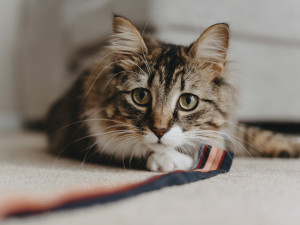
What Your Cat’s Sexy ‘Slow Blink’ Actually Means
Cat behaviourist Cristin Tamburo on how to read cat eyes
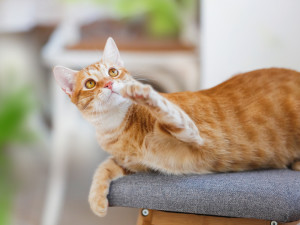
Why Do Cats Raise a Paw?
Are they saying “Hi” or trying to high-five? Cat behaviourists decode your pet’s cryptic paw signal
Can Cats See Colour?
Short answer: yes – but not the way we do
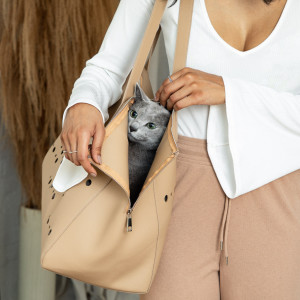
Your Cat Doesn’t Have to Hate Their Carrier
A behaviourist’s six surefire steps to training a cat to go in a carrier
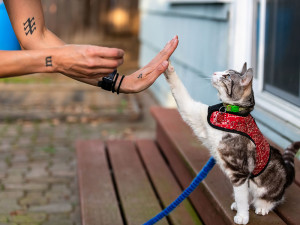
A Step-by-Step Guide On How to Clicker Train Your Cat
This popular training technique isn’t just for dogs. Here’s how you can make it work for your cat
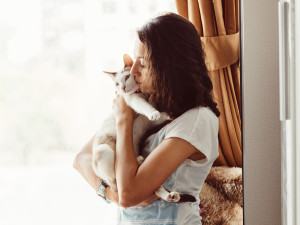
Why Do Cats Purr?
Surprise: it doesn’t always mean they’re happy

